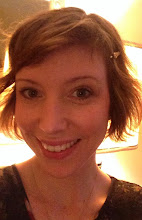Inspired Writing
Where do you do most of your writing? In front of a window? At a desk? On the couch? Curled up in bed?
Writers all have their own preferred method to the madness. I'm thinking a lot about inspiration. Where does it come from? What makes it stick?
Kent Haruf likes to write blind, literally. He pulls a ski cap over his face and works on a typewriter for days on end until he completes a first rough draft. Then, he goes back, without the cap, and makes changes and edits, finally retyping the new version on a computer.
Mary Gordon writes all of her novels longhand, in notebooks and with colorful pens she buys around the world.
John Irving still writes longhand too, waiting until a first draft feels well paced and then using up to six IBM Selectric typewriters to re-craft the tome.
Joyce Carol Oates goes jogging and envisions whole scenes of her novel as she rounds the Central Park reservoir.
Many writers were famously geared up after a good night's sleep.
Mary Shelley was inspired to write Frankenstein after having a dream in which she saw a "student of arts" standing over his unearthly creation.
Robert Louis Stevenson wrote and rewrote Dr. Jekyll and Mr. Hyde in ten weeks. His momentum, he has said, came from a single dream. He saw a man (Hyde) standing at a window, as yet unchanged. But, later in the dream, the man takes a powder in front of his "pursuers" and turns into another man entirely.
The plot for Stephen King's Misery arrived in a dream he had on a plane.
J.R. Moehringher posts photos of writers he admires above his desk to keep him afloat.
Walter Mosley says in an essay (Writers on Writing, The New York Times) that getting inspired is a lot like "gathering smoke". It is the smoke that initially gets the fire going, but the hard work and persistence that keep the flames alive.


